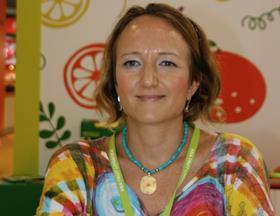
As Turkish citrus growers and exporters look ahead to the new season, one might expect their main concern to be how the Covid-19 pandemic may spread in the coming months, and what its potential impact on labour availability and market access may be. A bigger worry, however, is simply the weather, according to Ayşe özler, director of marketing and sales at grower-exporter özler Ziraat.
“The last citrus season came to an end in April,” said özler. “Since May, we have been working on the stonefruit season, implementing the strict Covid-19 protocols that have been introduced by our government and work safety advisors. The Turkish government has been doing a good job to support the food industry, including fruit companies like us. Through the Chamber of Industry, we were given access to test kits so we could check our staff, we were provided with services for the sanitisation of work premises, and we were offered weekly supplies of protective materials such as masks and gloves.”
In spite of all this support, özler revealed that every stage of the work process had seen an increase in costs due to restrictions and regulations. “Here in Turkey,” she said, “the main effect of Covid-19 has been on the cost of our operations rather than on labour availability, logistics or supplies of materials.”
Concerning the coming citrus season, far more than Covid-19, the main challenge has been the weather. “From mid-May, Turkey suffered extreme climatic conditions in all citrus areas,” says özler. “First, a heat wave saw temperatures rise to 45-50 degrees; then the temperature suddenly dropped by 15 degrees. Many regions and agricultural products have been badly affected, especially in citrus areas. We are not yet sure how big the losses are, but we expect significantly lower yields for all citrus varieties, especially early lemons.”
Another significant challenge she identified is the EU's restrictions on certain pesticides commonly used for citrus production in Turkey.
“Considering climate change, which by itself is creating huge difficulties and costs for us farmers, the growing tendency to restrict the use of and/or lower the accepted limits of pesticides is adding another battlefront and an additional cost to citrus production in Turkey,” she says. “As farmers and exporters, we would be less concerned if those extra costs were accepted in our markets, by our customers and consumers, but unfortunately we see that this is not the case. Instead what we see is losses every year due to some climatic issue – this year it was heat, last year it was rain and floods, the year before that was hail, the year before that was frost… And every year we see our production costs go up due to the restriction of another pre- or post-harvest product. Yet the buyers of Turkish citrus – be it wholesale or retail – are demanding cheaper and cheaper fruits.”
For özler, such a way of doing business makes a mockery of the concept of sustainability. “From the buyer side, it is popular nowadays to talk about sustainability, mainly with regard to environmental and social issues,” she said. “For a change, I would like to talk about sustainability from the farmer’s business perspective. How can a farmer run a sustainable business when costs are increasing every year and the market is demanding a product that looks better, requires less pesticides and is cheaper? There is neither sense nor sustainability in this perspective.”
But despite such issues, özler believes the entire industry should take some pride for its recent performance during challenging times. “During the worst period of the crisis, we proved that we were able to adapt to the new situation rapidly and without any interruption, as a country and as growers, packers and exporters,” she said. “We have been able to continue working at our full speed to meet the demand of our markets as usual. At özler Ziraat, we believe that, as long as we are healthy and continue to stand strong, we will be able to overcome these challenges by working harder, by using technology and innovation, and by supporting each other in our teams and communities.”



